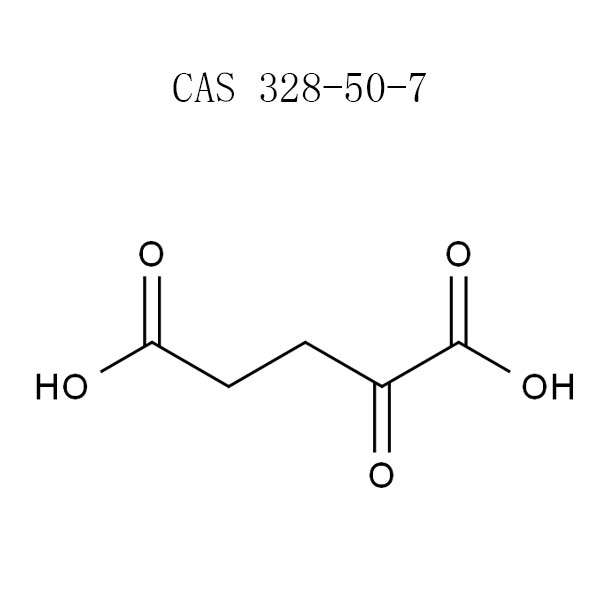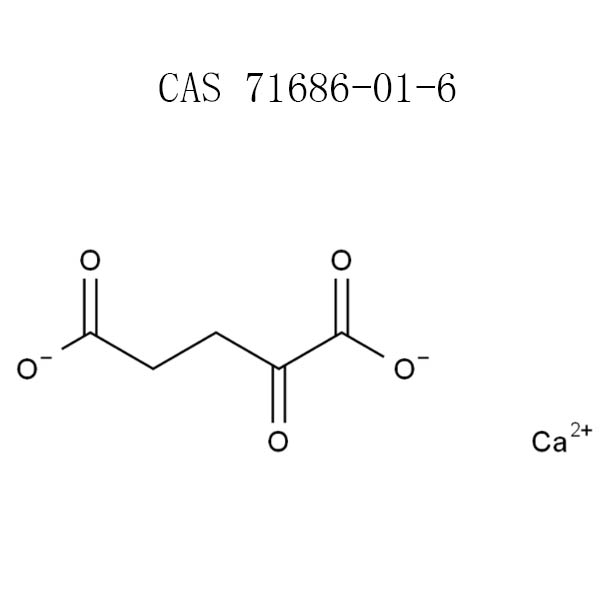α-ketoglutaric
Phcoker have the capability to mass production and supply of Calcium 2-oxoglutarate and Alpha-Ketoglutaric Acid under the condition of cGMP.
What other names is Alpha-ketgoglutaric acide known by?
A-cétoglutarate, A-Ketoglutaric Acid, Acide 2-Oxoglutarique, Acide a-cétoglutarique, Acide Alpha-Cétoglutarique, Alfa-Cetoglutarato, Alpha-Cétoglutarate, Alpha-Cétoglutarate d'Arginine, Alpha-Cétoglutarate de Calcium, Alpha-Cétoglutarate de Créatine, Alpha-Cétoglutarate de Glutamine, Alpha-Cétoglutarate de L-Arginine, Alpha-Cétoglutarate de L-Leucine, Alpha-Cétoglutarate de Taurine, Alpha Keto Glutaric Acid, Alpha Ketoglutarate, Alpha Ketoglutaric Acid, Alpha KG, AAKG, AKG, Arginine Alpha-Ketoglutarate, Calcium Alpha-Ketoglutarate, Creatine Alpha-Ketoglutarate, Glutamine Alpha-Ketoglutarate, L-Arginine AKG, L-Arginine Alpha Keto Glutarate, L-Leucine Alpha-Ketoglutarate, Taurine Alpha-Ketoglutarate, 2-Oxoglutaric Acid, 2-Oxopentanedoicic Acid.What is Alpha-Ketoglutaric acid?
Alpha-ketoglutaric (AKG) is an organic acid that is important for the proper metabolism of all essential amino acids and the transfer of cellular energy in the citric acid cycle. It is a precursor to glutamic acid, the non-essential amino acid involved in protein synthesis and the regulation of blood glucose levels. In combination with L-glutamate, AKG can reduce levels of ammonia formed in the brain, muscles and kidneys, as well as help balance the body’s nitrogen chemistry and prevent nitrogen excess in body tissues and fluids. Individuals with high protein intake, bacterial infections, or gastrointestinal dysbiosis may benefit from supplemental AKG to help balance ammonia levels and protect tissues.Some people take alpha-ketoglutarate to improve peak athletic performance. Suppliers of athletic nutritional supplements claim alpha-ketoglutaric acid may be an important addition to proper diet and training for the athlete who wants peak performance. They base this claim on studies that show extra ammonia in the body can combine with alpha-ketoglutarate to reduce problems associated with too much ammonia (ammonia toxicity). But, so far, the only studies that show alpha-ketoglutarate can reduce ammonia toxicity have been performed in hemodialysis patients.
Healthcare providers sometimes give alpha-ketoglutarate intravenously (by IV) for preventing injury to the heart caused by blood flow problems during heart surgery and for preventing muscle breakdown after surgery or trauma.
The Mechanisms of action of Alpha-Ketoglutaric acid
The exact mechanisms of action for α-Ketoglutarate have not yet been elucidated. Some of α-Ketoglutarate’s actions include acting in the Krebs cycle as an intermediate, transamination reactions during the metabolism of amino acids, forming glutamic acid by combining with ammonia, and reducing nitrogen by combining with it as well. Concerning α-Ketoglutarate’s actions with ammonia, it is proposed that α-Ketoglutarate can help patients with propionic academia who have high levels of ammonia and low levels of glutamine/glutamate in their blood. Because endogenous glutamate/glutamine is produced from α-Ketoglutarate, propionic acidemia patients have impaired production of α-Ketoglutarate and supplementation of α-Ketoglutarate should improve the condition of these patients. Several other experimental studies have also shown that administration of α-Ketoglutarate in parenteral nutrition given to post-operative patients helped attenuate the decreased synthesis of muscle protein that is often seen after a surgery. This decreased muscle synthesis is speculated to be due to too low α-Ketoglutarate levels.Alpha ketoglutaric acid (AKG) supplement - What are the benefits of Alpha ketoglutaric acid?
Alpha-Ketoglutarate (AKG) as an Athletic Performance Supplement
Alpha ketoglutaric acid, or Alpha-ketoglutarate is a product of the mitochondria and plays a vital role in the conversion of food into energy. It is also a source of glutamine and glutamate. In muscles, glutamine and glutamate inhibit protein breakdown and increase protein synthesis.Alpha-ketoglutarate enhances bone formation. It regulates the synthesis of collagen possibly by increasing the number of molecules available for synthesis. Collagen is a significant component of bone tissue.
Alpha-ketoglutarate stimulates the production of insulin-like growth factor-1 and growth hormone. These are both hormones that regulate bone recycling and formation of new bone tissue.
alpha ketoglutaric acid benefits on aging
Studies have shown that AKG can potentially treat multiple conditions when taken as directed.However, there are other indications that Alpha-Ketoglutarate (AKG) might be able to help with anti-aging properties.
One large study conducted at the Buck Institute for Research on Aging along with Ponce de Leon Health found improved healthspan by as much as 60% in their mammalian study.

AKG extends the adult lifespan of C. elegans. (A) AKG extends the lifespan of adult worms. (B) Dose-response curve of the AKG effect on longevity.
In addition, Ponce De Lon Health (PDL) released an experimental report, the report showing that after half a year, the physiological age of the subjects decreased on average 8.5 years old after taking the alpha-ketoglutarate (AKG) contained in the company.Other compounds, like the antiaging drug rapamycin and the diabetes treatment metformin, have shown similar effects in mouse experiments. But AKG is naturally made by mice and by our own bodies, and it is already considered safe to consume by regulators.
The things we need to pay attention to is that pure alpha ketoglutaric acid is very acidic and not easy to eat. The fitness supplements on the market are added with arginine-α-ketoglutarate(AAKG), the main component of which is arginine, while the one used by Ponce De Lon Health is α-ketoglutarate calcium.
Alpha-ketoglutarate also has immune-enhancing properties
AKG is also called the immune nutrient factor and it play an important role in the general immune metabolism. It is already known that AKG is an important source of glutamine and glutamate, is defined as glutamine homologue and derivative . In the body, it is converted into glutamine. Glutamine can increase levels of white blood cells (macrophages and neutrophils).AKG as glutamine homologue has immuno-enhancing properties, can maintain a gut barrier, increase immune cells and the activity of neutrophils and phagocytosis, reduce bacterial translocation in vivo .Reference:
- Aussel C, Coudray-Lucas C, Lasnier E, et al. Alpha-Ketoglutarate uptake in human fibroblasts. Cell Biol Int 1996;20:359-63.
- Wernerman J, Hammarqvist F, Vinnars E. Alpha-ketoglutarate and postoperative muscle catabolism. Lancet1990;335:701-3.
- Blomqvist BI, Hammarqvist F, von der Decken A, Wernerman J. Glutamine and alpha-ketoglutarate prevent the decrease in muscle free glutamine concentration and influence protein synthesis after total hip replacement. Metabolism1995;44:1215-22.
- Hammarqvist F, Wernerman J, von der Decken A, Vinnars E. Alpha-ketoglutarate preserves protein synthesis and free glutamine in skeletal muscle after surgery. Surgery1991;109:28-36.
- Zhang W , Qu J , Liu G H , et al. The ageing epigenome and its rejuvenation[J]. Nature Reviews Molecular Cell Biology, 2020, 21(3).
- Rhoads T W , Anderson R M . Alpha-Ketoglutarate, the Metabolite that Regulates Aging in Mice[J]. Cell Metabolism, 2020.
- Alpha-Ketoglutarate, an Endogenous Metabolite, Extends Lifespan and Compresses Morbidity in Aging Mice. Asadi Shahmirzadi A, Edgar D, Liao CY, Hsu YM, Lucanic M, Asadi Shahmirzadi A, Wiley CD, Gan G, Kim DE, Kasler HG, Kuehnemann C, Kaplowitz B, Bhaumik D, Riley RR, Kennedy BK, Lithgow GJ.



